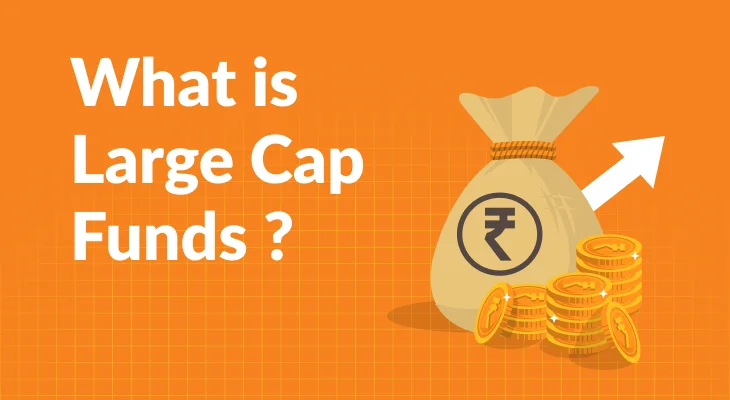
Table of content
What are Large Cap Funds?
Capital markets have long been considered an excellent avenue for creating wealth. And one of the most popular investment instruments is equity shares. Investors can buy equity stocks directly from the market. But this can be risky due to lack of diversification and active management. So, as an alternative, investors choose mutual funds that invest in a basket of equity stocks. This results in diversification and active asset management. Equity mutual funds are bifurcated into three categories based on the market capitalisation of the underlying companies, namely large cap funds, mid cap funds, and small cap funds. Of these, large cap funds are extremely popular among conservative long-term investors, retirees and even stock market beginners with low-risk appetite.
What are large cap mutual funds?
As the name suggests, large cap mutual funds invest in the stocks of companies which are categorised as large cap or blue-chip. These companies are market leaders with market capitalisation of more than Rs 25,000 crore. In India, the top 100 companies listed on the stock exchange are categorised as large cap stocks.
Large cap funds are thought to be an excellent investment option owing to the high degree of stability displayed by the underlying stocks. Although the stocks of large cap companies are not immune to market fluctuations, their consistent long-term performance, strong balance sheet and products are indicative of their ability to withstand economic pressures and crises. As a result, large cap stocks are less risky compared to midcap and small cap stocks.
Invest in large cap mutual funds
If you are looking for a mutual fund scheme to invest in, then Large Cap Funds are one of the best investment options available in the market. Not only do these funds have robust returns, especially over a long investment horizon, they are also relatively stable and low risk. This makes them ideal for investors with a low to moderate risk appetite.
To get the maximum return from your investment in large cap funds, you must remain invested in the fund for at least five years. Having a long-term investment horizon neutralises the impact of short-term market fluctuations. One caveat of investing in large cap funds is that the returns may not be as high as those of mid cap and small cap stocks.
Important Features of Large Cap Mutual Funds
Before investing in Large Cap Funds, it is important to understand their key features, such as:
Risk profile:
Owing to the high degree of stability of the underlying equity stocks, large cap funds are low risk, making them an ideal investment option for conservative investors. The fluctuations in the Net Asset Value of large cap mutual funds are usually lower compared to small and midcap funds.Ideal investment horizon:
Large cap funds are ideal for medium to long-term investments. Over a five-to-seven-year period, the returns from large cap funds tend to beat inflation comfortably. Hence these funds are ideal for investors looking for a long-term investment option.Taxation:
The returns from large cap funds are taxable. Short Term Capital Gains (less than 1 year) are taxed at 15% whereas Long Term Capital Gains are taxed at 10% over and above Rs 1 lakh in a financial year.Expert fund management:
Large cap funds are managed and moderated by fund managers, and this service has a cost attached to it, known as expense ratio. The higher the expense ratio, the lower the returns generated by the fund. Fortunately, the expense ratio of most large cap funds is lower than mid and small cap funds.
For investors looking for a stable long-term investment option, large cap funds make for an excellent choice.





